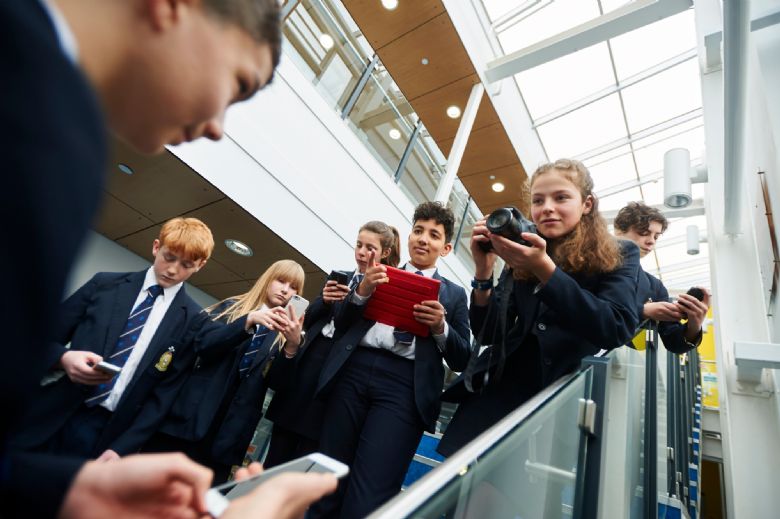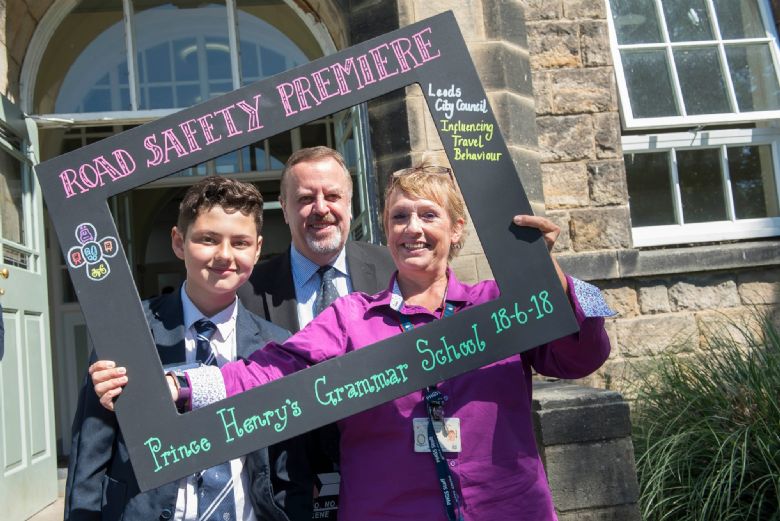Media & Film Studies
FACULTY LEADER: Mr S Hunt
SUBJECT LEADER: Ms S Ellis

The average student at Prince Henry’s is exposed to something between 4000 and 10000 separate advertising messages every day. There is no doubt that the media is a highly influential force in our students' lives. There is also no doubt that the youngsters at Prince Henry’s are part of a media literate generation who are much more thoughtful about their media consumption than the tabloid leader writers give them credit for.
Media Studies is a vibrant and exciting subject where students are encouraged to be creative, practical, analytical and thoughtful, while developing high level analytical skills. Media Students study television, radio, magazines, newspapers, web sites, film, video games and the music industry.
Film studies, which is offered at A Level allows students to develop a rich knowledge of Film. During the course we study British film , The Golden age of Hollywood, global film , films from the silent era and German expressionist movement as well as more mainstream films from the modern era. Student on the film Studies course will also be involved in the production of their own film.
The Creative Media industries are among the fastest growing sectors of the British economy that are still growing and all the Media courses offered at Key Stage 4 and 5 are designed to develop a range of practical industry based skills. All students are taught to edit video, stills and sound, develop their project management skills, work as a team and evaluate their own and the work of others.
Students enjoy their work in Media Studies and achieve excellent results.
KS3 Curriculum
Every student in Years 7, 8 and 9 studies the media, but this is done through English and ICT. Study of newspapers, animation, websites, magazines, film, television, social networking sites and pop music are all built into Key Stage 3 curriculum in both subjects.
KS4 and KS5 Curriculum
At Key Stage 4, students can choose to take GCSE Media Studies, or they can choose to take a Level 2 Cambridge National in Creative iMedia– worth the equivalent of 4 passes at GCSE.
At Key Stage 5, students can choose to take A Level Media Studies, A Level Film Studies or a Level 3 Cambridge Technical in Digital Media.
Please see the Key Stage 4 Options and Sixth Form pages for details of the KS4 and KS5 offered by the Media Studies team.
Assessment
Assessment plays a crucial role in the development and learning for all students and each member of the faculty ensures assessment takes place, with feedback provided, in the following ways -
Assessment for learning (Checking understanding and informing next steps): A range of strategies are used to check understanding and inform next steps including post-it-note tests , questions at the start of every lesson that reflect on previous learning and/or check understanding about the lesson topics to be covered and questioning in class – mix of open and closed questions.
Assessment as learning (Helping students embed knowledge): Helping students to embed knowledge occurs through short practice questions , plans for answering questions in class low stakes tests, green penning , and exam practice book, practical skills development in media production, media technologies and project work, in lesson activities to reinforce learning with past paper questions included for self-review and class discussion.
Assessment of learning (Measuring how much learning has taken place): Measuring how much learning has taken place includes plenary questions reviewing learning in that lesson, summative assessment of topics with exam practice questions mock exams /end of topic assessments comprising past paper questions with all topics covered to encourage greater retention of learning from previous weeks/months, assessment of NEA tasks.
Assessments have been calendared to try and fit closely to data entry points and development of all coursework is closely monitored throughout the year for each course with NEA components.
Enrichment
 Media Studies students make a huge contribution to the life of the school. They get involved in making films for many different faculties across the school. Any budding film makers are encouraged to use the Media cameras and editing suite at lunchtime and after school to create their own projects. This year, members of the Media Studies Film Club will be making a series of short films to promote the school efforts to champion environmental causes.
Media Studies students make a huge contribution to the life of the school. They get involved in making films for many different faculties across the school. Any budding film makers are encouraged to use the Media cameras and editing suite at lunchtime and after school to create their own projects. This year, members of the Media Studies Film Club will be making a series of short films to promote the school efforts to champion environmental causes.
